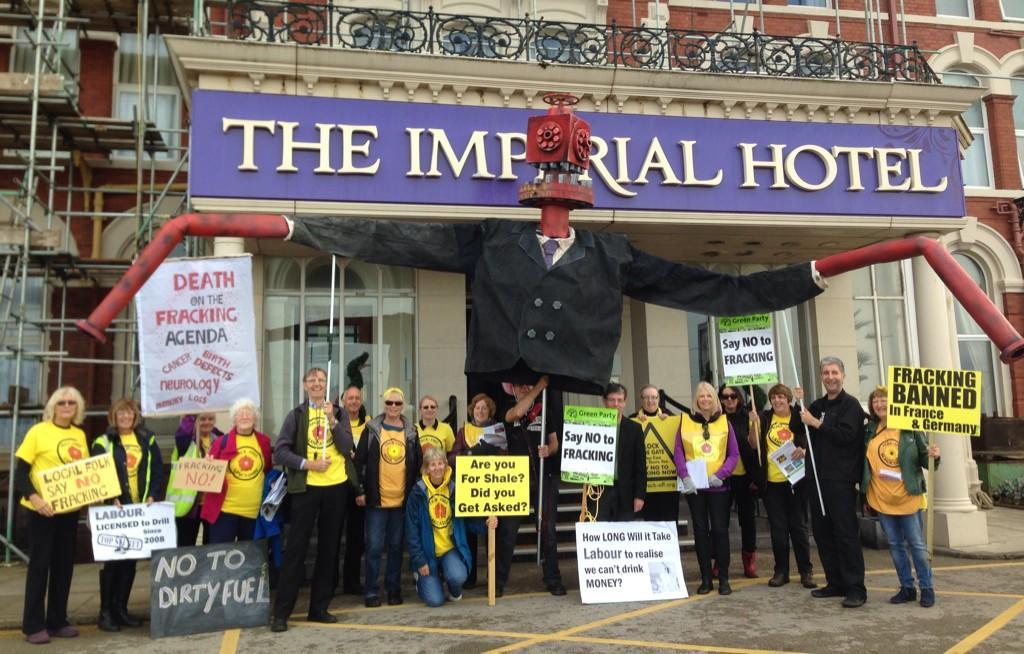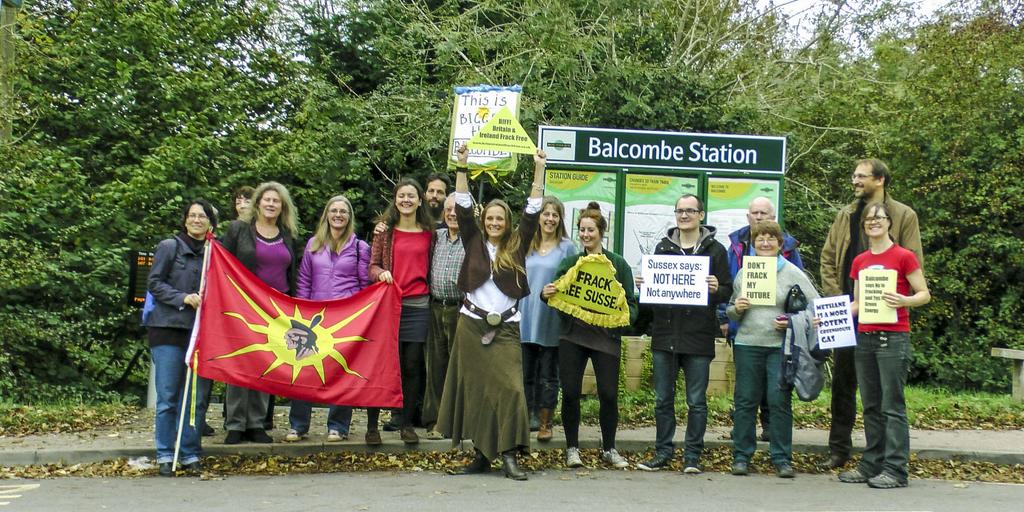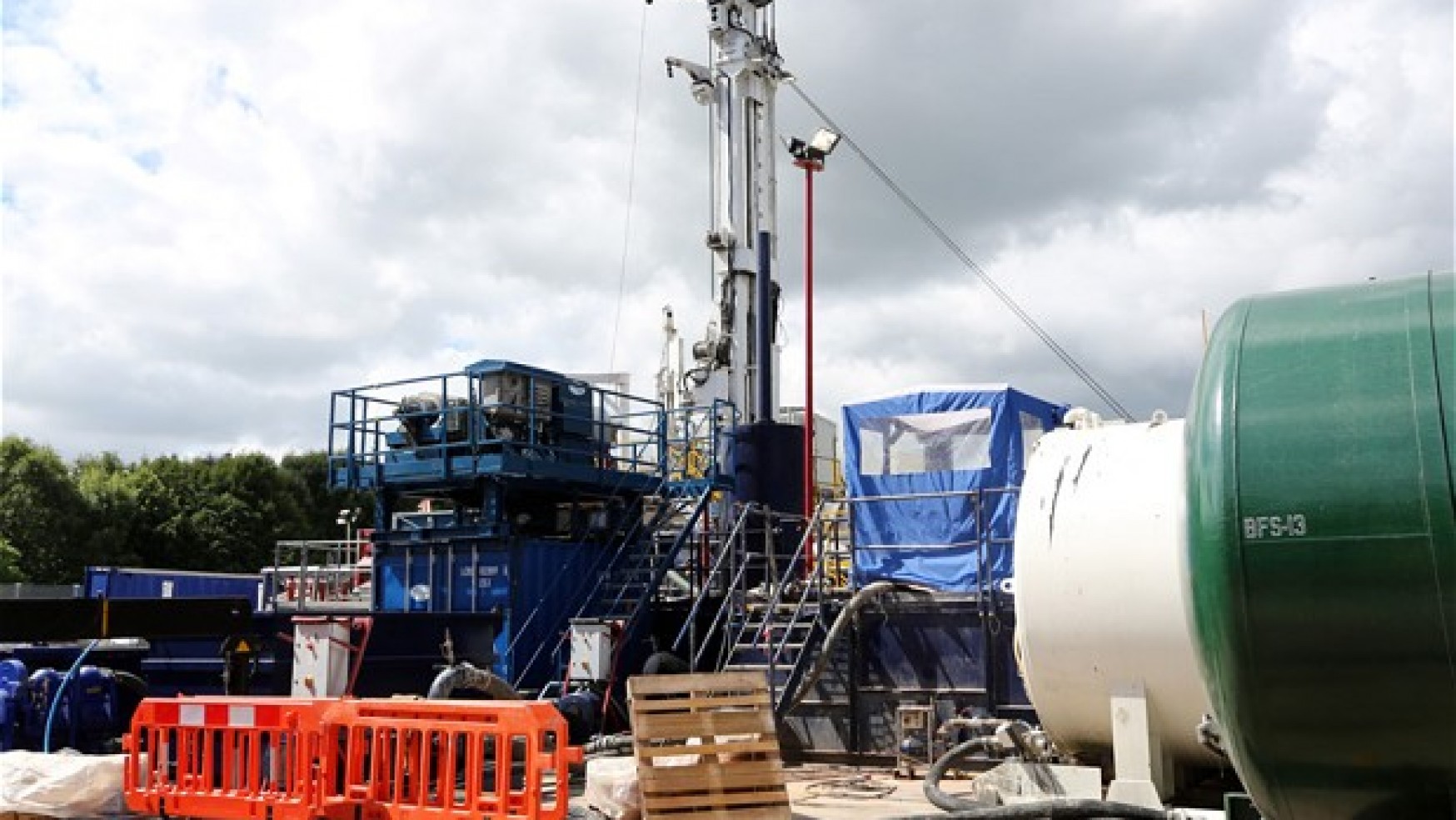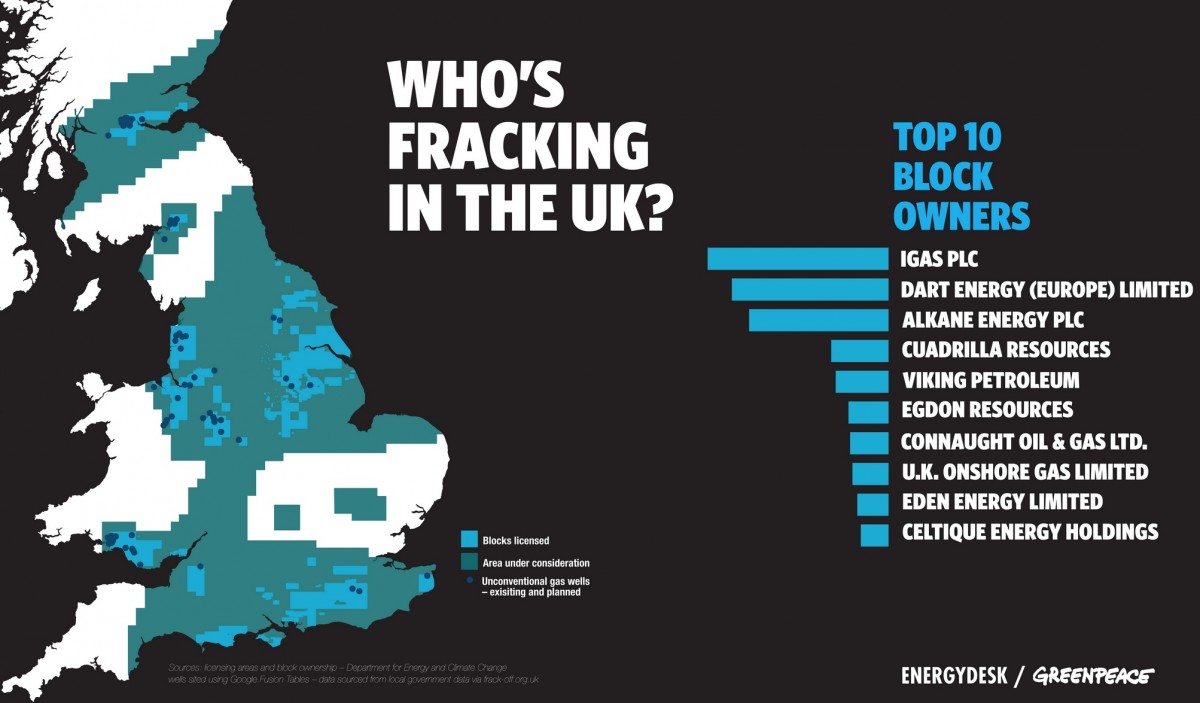
Imagine having nuclear waste buried underneath your home and being completely unable to stop it. This shocking prospect could soon become reality in Britain where the government plans to allow fracking companies to put “any substance” under people’s property and homes and leave it there.
The law to end landowners' ability to stop fracking below their property is being pushed through as part of the country's Infrastructure Bill, which proponents say will improve how the U.K. funds, plans, manages and maintains its national infrastructure.
But the bill includes an amendment that authorizes “passing any substance through, or putting any substance into, deep level land.” It specifically gives the right to “leave deep-level land in a different condition from [that before] including leaving any infrastructure or substance in the land.”
It follows news in September when the U.K. Department of Energy and Climate Change said it would go ahead with proposals to allow fracking companies to drill under people’s land without their permission. The nationwide proposal will make it legal for companies to drill 300 meters beneath private land without requiring the permission of landowners.
Making a Mockery of "the Best" Shale Gas Regulation
The controversial proposals have been condemned by green campaigners who say the legislation is so “loosely worded” it could even enable the burial of nuclear waste. Watchdog groups also assert the legal changes would make a “mockery” of ministers’ prior claims that Britain has "the best" shale gas regulation in the world.
According to Tony Bosworth at Friends of the Earth, the amendment, would clearly enable companies to dispose of fracking fluids that are often contaminated with radioactive metals and toxic elements.
“The government appears to be trying to sneak through an amendment which would allow fracking firms to reinject their waste under people’s homes and businesses,” Bosworth said.
Fighting back, the U.K. government says the proposed legal changes are “vital to kickstarting shale gas exploration” in the country. It also argues that the present law allowing people to prevent the development of shale gas under their property would lead to “significant delays” in the case of a fracking boom. Ministers have publicly argued the current legal process by which companies must push forward fracking plans is “costly, time-consuming and disproportionate.”
Public Backlash Against Unrestricted Fracking
However, as the public and you get a different opinion. Of the more than 40,000 responses to a consultation on plans to enable oil and gas companies underground access without requiring landowners’ permission, 99% of U.K. residents opposed the changes.
Simon Clydesdale, a campaigner at Greenpeace UK, said, “Minsters are effectively trying to absolve fracking firms from responsibility for whatever mess they’ll end up leaving underground."
"This amendment makes a mockery of the government’s repeated claims about Britain’s world-class fracking regulations. Far from toughening up rules, ministers are bending over backwards to put the interests of shale driller before the safety of our environment and our climate,” he said.
Meanwhile, anti-fracking activists across the U.K. have been busy raising the issue in the public arena. As Steve Rushton reported for Occupy.com in August, no less than a dozen anti-fracking actions took place throughout the U.K. on a single day of protest against the industry and its government supporters.
As part of a week-long "Reclaim the Power" camp, the protesters sought to draw attention to the dangers of fracking and, as Rushton puts it, “the corrupt web of corporate and government power aggressively pushing the process forward despite widespread public opposition.”
Echoes of the Halliburton Loophole
Britain's controversial amendment shares similarities with the “Halliburton Loophole,” which was pushed through by Vice President Dick Cheney early during George W. Bush's second term in office. The Halliburton Loophole refers to legislation introduced in the 2005 Energy Policy Act that permits fracking companies to skirt federally mandated regulations which adhere to the Safe Drinking Water Act of 1974.
As Truthout explains, Cheney, the former Chairman and CEO of Halliburton, one of the world’s largest oil field services companies, sought to make the firm a central player in the fracking industry that emerged in force last decade across the U.S.
The company, however, like other firms faced obstructions in the form of the Safe Drinking Water Act, which outlawed toxic chemicals from entering drinking water sources. As a major stakeholder in Halliburton, Cheney pushed Congress to create an exemption from the law for the fracking industry. Nearly a decade after the “Halliburton Loophole” was signed into law, the EPA is unable to regulate toxic chemicals when they enter America’s water supply through the fracking process.
And it's this kind of blatant corporate-government collusion, for industry profit and against the public interest, that U.K. residents are now seeing echoed in a law that represents a clear breach of democratic rights to health and safety.
As author and environmental activist Naomi Klein points out, the recent changes to the law in the U.K. giving companies the right to frack beneath private properties with landowners’ permission is a rights violation that is already producing a backlash. In her book "This Changes Everything: Capitalism vs the Climate," Klein talks about how the UK's decision to make landowners powerless amid fracking activities on their own land is energizing resistance to fracking across the UK.
“What is animating the anti-fracking movement? Yes, it’s water. It’s also a defense of democracy,” Klein said at a Guardian Live event. The recent scene of occupation in Parliament Square in London, known as Occupy Democracy, is testament to this, as fracking was among the central points of resistance at the 10-day protest.
If the U.K. government insists on ignoring the 99% opposition to its controversial changes to fracking law, what else but renewed occupation by the 99% does it expect?
3 WAYS TO SHOW YOUR SUPPORT
- Log in to post comments

















